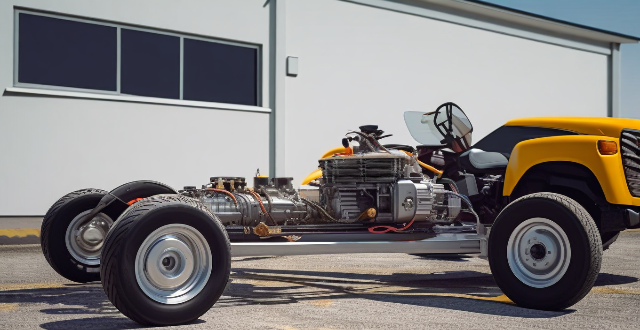Brushless motors offer several advantages over traditional brushed motors, including higher efficiency, lower maintenance requirements, quieter operation, and more precise speed control. While they may be more expensive initially, their superior performance and durability make them a worthwhile investment for many applications.

Introduction
Brushless motors have become increasingly popular in recent years due to their numerous advantages over traditional brushed motors. In this article, we will compare the two types of motors and highlight the key differences between them.
Key Differences
Efficiency
- Brushless Motors: Brushless motors are more efficient than brushed motors because they have fewer mechanical losses. This means that they can convert more of the electrical energy into mechanical energy, resulting in higher power output and longer run times on a single charge.
- Brushed Motors: Brushed motors have more friction and resistance due to the brushes rubbing against the commutator, which results in lower efficiency and shorter run times on a single charge.
Maintenance
- Brushless Motors: Brushless motors require less maintenance because they do not have any brushes that need to be replaced. This makes them ideal for applications where regular maintenance is not feasible or desirable.
- Brushed Motors: Brushed motors require regular maintenance to replace worn out brushes, which can be time-consuming and expensive.
Noise and Vibration
- Brushless Motors: Brushless motors produce less noise and vibration than brushed motors because they do not have any brushes rubbing against the commutator. This makes them ideal for quiet operation in sensitive environments.
- Brushed Motors: Brushed motors produce more noise and vibration due to the brushes rubbing against the commutator, which can be distracting or annoying in some applications.
Speed Control
- Brushless Motors: Brushless motors offer more precise speed control because they use electronic controllers to regulate the speed and torque of the motor. This allows for finer adjustments and better performance in demanding applications.
- Brushed Motors: Brushed motors rely on mechanical contacts between the brushes and the commutator to regulate speed, which can result in less precise control and lower performance in demanding applications.
Cost
- Brushless Motors: Brushless motors are generally more expensive than brushed motors due to their advanced technology and higher manufacturing costs. However, their superior efficiency and lower maintenance requirements can offset the initial cost over time.
- Brushed Motors: Brushed motors are generally less expensive than brushless motors, making them a good choice for budget-conscious consumers or applications where high performance is not required.
Conclusion
In conclusion, brushless motors offer several advantages over traditional brushed motors, including higher efficiency, lower maintenance requirements, quieter operation, and more precise speed control. While they may be more expensive initially, their superior performance and durability make them a worthwhile investment for many applications.